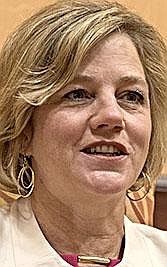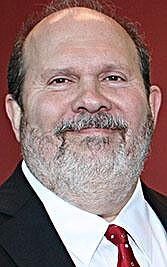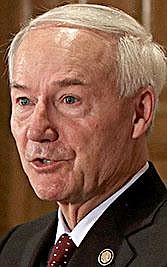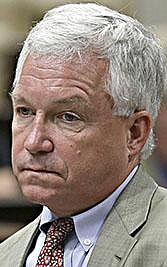The number of uninsured children in Arkansas rose by 3,000 from 2016 to 2017, marking the first year since 1997 that the number has increased, according to a report released Thursday.
The rise follows a national trend that shows an estimated 276,000 more children lacked insurance in 2017 than in 2016, up to 3.9 million children from 3.6 million the previous year, according to the report by the Georgetown University Health Policy Institute Center for Children and Families.
It is the first time the report has shown an increase nationally since the institute began recording the numbers in 2008.
Arkansas sits in the middle of the pack in terms of the number of uninsured children, ranking 20th in the nation with 33,000. Arkansas' percentage of uninsured children is 4.4 percent, better than all but two of its surrounding states, Tennessee and Louisiana.
In Tennessee, 71,000 (4.4 percent) of children are uninsured -- the same percentage as Arkansas and lower than the national average of 5 percent. Louisiana has 36,000 uninsured children, or 3.1 percent.
Texas has the highest number of uninsured children in the nation at 835,000, which is 21 percent of all the nation's uninsured children.
Marcy Doderer, president and CEO of Arkansas Children's Hospital, said the increase in the number of uninsured children in Arkansas is fairly small and that the state is doing a good job of providing children with health insurance.
"Arkansas currently does well by kids," she said.
Doderer expressed concern that surrounding states that have markedly more uninsured children could eventually affect Arkansas.
If Arkansas' economy continues to improve, in line with state officials' plans, then the better circumstances will draw families from neighboring states. Doderer said parents from those states could be conditioned to being unable to obtain state health insurance for their children and less likely to seek it here.
The report said the national uptick in uninsured children can be traced to attempts to overhaul publicly funded health care.
The study blamed the increases on repeated efforts by Republicans to repeal the Patient Protection and Affordable Care Act. It also noted that President Donald Trump's administration dramatically cut the law's outreach and enrollment grants and shortened the time period in which people can enroll in coverage.
Such actions made families less likely to enroll in health care, the report said.
"The Trump administration has done everything that it possibly could to undermine the Affordable Care Act," said Rich Huddleston, executive director of Arkansas Advocates for Children and Families.
The report also noted the administration's increased pressure on immigrant families, which it said reduced the trust those families have in government operations and therefore decreased the likelihood they would enroll their children in publicly funded health care.
The report's authors also expressed concern that the uptick in uninsured children will continue unless officials take immediate and drastic measures.
Huddleston said he believes the newly established work requirement for Arkansas Works will indirectly raise the number of uninsured children.
Even though parents are exempt from the stipulation, Huddleston said he believes they'll be intimidated by the work requirement and under the impression that it would apply to them, which would deter parents from applying for the coverage.
Huddleston said parents often learn about the state's insurance program for children, ARKids First, when they sign up for Arkansas Works. So if fewer parents enroll in Arkansas Works, Huddleston worries that fewer parents will know about ARKids First and will fail to enroll their children.
Gov. Asa Hutchinson, who has lauded the state's work requirement, disagreed.
"A parent or guardian with a dependent at home is exempt from the Arkansas Works work requirement," Hutchinson said in a released statement. "It is hard for me to believe, based on that fact, that a parent or guardian would choose not to apply for Arkansas Works for that reason."
Joe Thompson, a pediatrician and president of the Arkansas Center for Health Improvement, said access to children's insurance is important because uninsured children face increased health problems.
When children are uninsured, parents usually aren't able to pay for preventive care, which is important early in life, he said.
"If you don't have a financial mechanism to help pay for the doctor, you're less likely to go to the doctor," Thompson said.
Thompson said it's crucial for parents to take their children to the doctor during the first few years of life to address early developmental problems.
"A kid's direction in life is largely set by the time they enter kindergarten," Thompson said.
A Section on 11/30/2018




